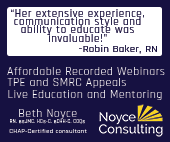by Elizabeth Hogue, Esq.
For providers to be liable under the federal False Claims Act, enforcers must prove that they knowingly submitted false claims. The U.S. Supreme Court recently issued an opinion in United States ex rel. Schutte v. SuperValu, Inc. [No. 21-1326 (U.S. June 1, 2023)], which defines what “knowingly” means. The Court decided that providers act knowingly depending on their “culpable state of mind” when they submitted alleged false claims; not what providers may have thought after submitting them. The requirement to prove knowledge, or “scienter,” said the Court, refers to providers’ knowledge and subjective beliefs; not to what objectively reasonable persons may have known or believed.
On June 30, 2023, the U.S. Supreme Court issued orders that revive two whistleblower lawsuits based on the opinion described above. Specifically citing the above decision, the Court granted whistleblower Troy Olbausen’s request to hear his case. The Court then vacated an Eleventh Circuit decision that dismissed Olhausen’s whistleblower lawsuit.
The Eleventh Circuit previously dismissed Olhausen’s suit against Arriva Medical because he could not prove that the defendants had knowledge of their submission of false claims in view of their objectively reasonable interpretation of the Medicare rules in question. The Supreme Court sent the case back to the Eleventh Circuit for further consideration based on its decision in Schuttte v. SuperValu, above [Olhausen v. Arriva Med., LLC, No. 22-374 (U.D. June 30, 2023)].
Likewise, on June 30, 2023, the Supreme Court sent a case back to the Fourth Circuit for further consideration in light of the Schutte case.
These actions make it clear that the new standard set by the Supreme Court in the Schutte case will make a difference in cases based on the federal False Claims Act. The Court said in the Schutte case:
“Both the text and the common law also point to what the defendant thought when submitting the false claim – not what the defendant may have thought after submitting it…As such, the focus is not, as respondents would have it, on post hoc interpretations that might have rendered their claims accurate. It is instead on what the defendant knew when presenting the claims…Culpability is generally measured against the knowledge of the actor at the time of the challenged conduct.”
The Court also said:
“Under the FCA, petitioners may establish scienter by showing that respondents:
- actually knew that their reported prices were not their ‘usual and customary’ prices when they reported those prices;
- were aware of a substantial risk that their higher, retail prices were not their ‘usual and customary’ prices and intentionally avoided learning whether their reports were accurate, or
- were aware of such a substantial and unjustifiable risk but submitted the claims anyway…
If petitioners can make that showing, then it does not matter whether some other, objectively reasonable interpretation of ‘usual and customary’ would point to respondents’ higher prices. For scienter, it is enough if respondents believed that their claims were not accurate.”
Proving that providers submitted false claims just got tougher for enforcers.
See Ms. Hogue’s earlier report on this SCOTUS case in our June 7 edition: homecaretechreport.com/article/3587
©2023 Elizabeth E. Hogue, Esq. All rights reserved. No portion of this material may be reproduced in any form without the advance written permission of the author.
©2023 by Rowan Consulting Associates, Inc., Colorado Springs, CO. All rights reserved. This article originally appeared in Home Care Technology: The Rowan Report. homecaretechreport.com One copy may be printed for personal use; further reproduction by permission only. editor@homecaretechreport.com



